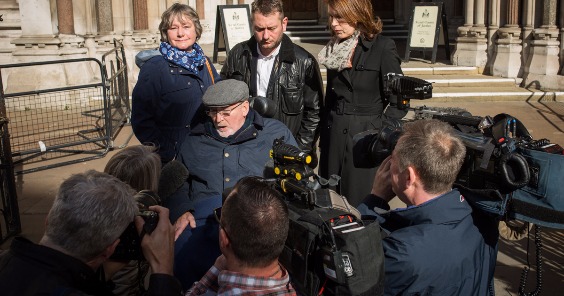Jersey may become the first place in the British Isles to legalise assisted dying, as the government has promised to commission research into life-ending options.
Deputy Richard Renouf (pictured above), health minister for the island, said that due to the complexity and sensitivity of the topic, it was necessary to help make an informed discussion.
The move has been welcomed by assisted dying campaign group Dying In Dignity, who said that the research will be paramount to changing current “unfair” policy.
“We know that dying people want choice at the end of life, just as they have throughout their lives until that point. For too long that choice has been narrowly-drawn, focusing on where someone dies, but not how or when,” said Tom Davies, a spokesman for the organisation.
We know that dying people want choice at the end of life just as they have throughout their lives until that point.
Tom Davies, Dying In Dignity
The decision to review assisted dying in Jersey comes after the Island introduced legislation which defines mental capacity.
As part of the Capacity and Self Determination bill, a person can create a legally binding document in which they can set out their preference for treatment if they fall ill, which opens the way to end-of-life options.
What Is The Law On Assisted Dying?

The Jersey State Building. Image Credit: Jack Cousin / Flickr
Assisted dying is illegal across the rest of the UK under the 1961 Suicide Act and punishable of up to 14 years in prison across much of the UK, although people are not always prosecuted. Numerous attempts have been made to change the law, but bills continue to fall flat.
In Jersey, there are similar restrictions under the 1986 homicide law.
Guernsey, a neighbouring island to Jersey, attempted to legalise a bill on end-of-life choices last year, but the bill was voted down in favour of more research.
While the Human Rights Convention protects a right to life with Article 2, it does not consider a right to die – and the Human Rights Court has ruled that a ban on assisted dying does not breach fundamental human rights.
However, under Article 3, which guards against cruel, inhuman and degrading treatment, those dying should be entitled to dignified treatment that is tailored to meet their needs.
A Taboo Topic

Credit: Unsplash
MPs continue to vote down assisted dying bills, despite some studies showing 82 per cent of the public supporting giving terminally ill adults who are mentally competent an option to end their life.
Davies explained that a lot of the opposition to assisted dying comes from fear for vulnerable people, but insisted that laws can be crafted to protect these individuals and offer an important option for terminally ill people.
For too long, lawmakers in Britain have shied away from giving their dying citizens this choice.
Tom Davies, Dying In Dignity
“For too long, lawmakers in Britain have shied away from giving their dying citizens this choice,” Davies said.
Who Does This Impact?

Noel Conway outside court. Image Credit: Dignity in Dying
Many people have challenged the current law, including Diane Pretty and Noel Conway, who both suffered from motor neurone disease, as well as Jane Nicklinson, whose husband Tony was almost totally paralysed following a severe stroke.
It is vital that everyone’s dignity, autonomy, and freedom of choice are maintained throughout their lives
Dave Crocker, Channel Islands Humanists
Conway got as far as the Court of Appeals with his case, but it was eventually struck down. Campaigners, however, believe that having the right to die creates freedom of choice.
“It is vital that everyone’s dignity, autonomy, and freedom of choice are maintained throughout their lives, and for many this can only be possible by changing the law to allow assisted dying for those who are of sound mind but who are terminally ill or incurably suffering,” Dave Crocker, chair of the Channel Islands Humanists, told RightsInfo.
What Does Assisted Dying Look Like Around The World?

Credit: Pexels
The Netherlands, Switzerland, Belgium, Canada and Columbia are just a few of the countries that have legalised assisted dying nationwide. It is legal in just a few states and jurisdictions across the US and Australia.
Davies hopes that Jersey’s research will look at these countries which have successfully implemented assisted dying, and see that it “is not only a possibility but a moral imperative”.
“If 100 million people in the USA, Canada and Australia can be given the right to die on their own terms, it surely can’t be beyond the wit of politicians, whether in Westminster, Holyrood, or the States of Jersey to draft a similar law,” he said.







